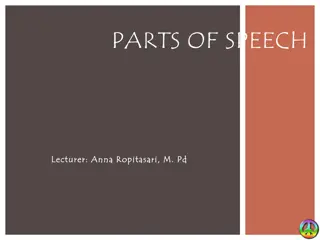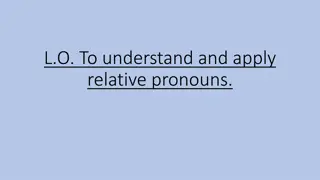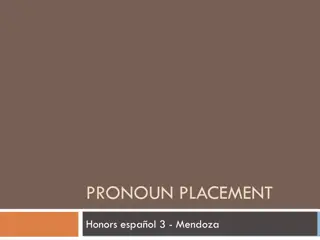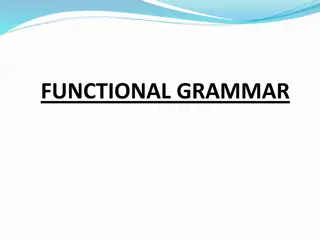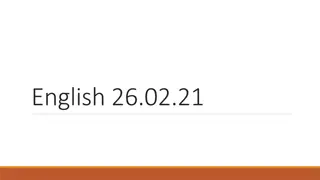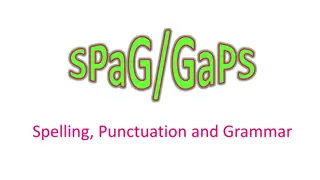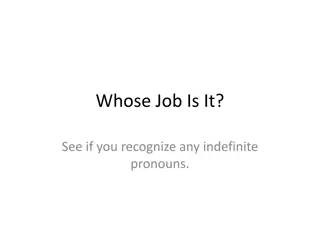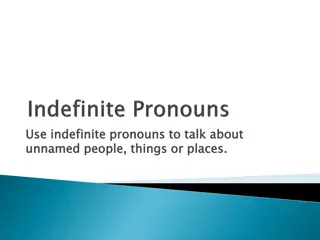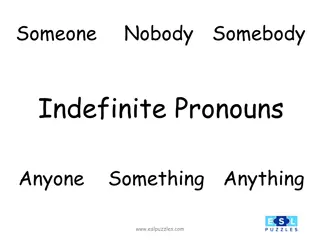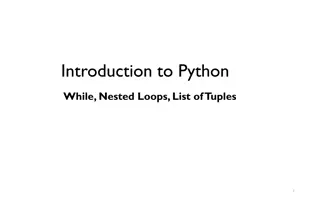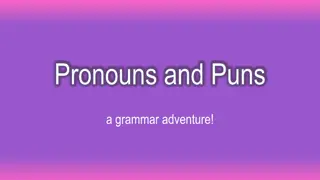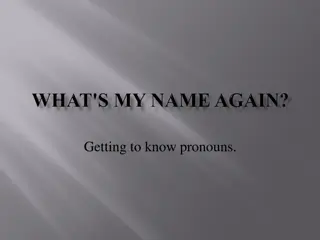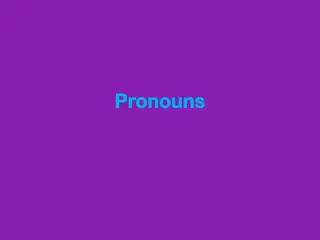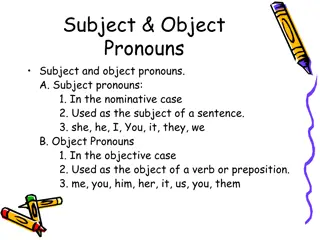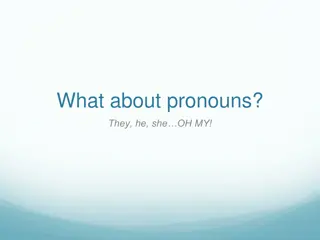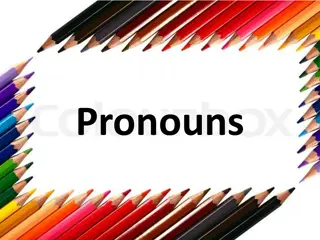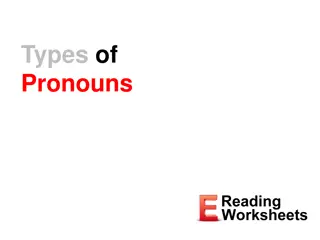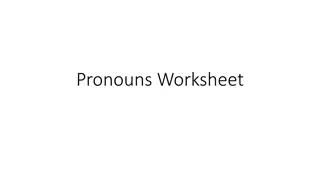
Mastering Indefinite Pronouns for Subject-Verb Agreement
Learn how to correctly use singular and plural indefinite pronouns in subject-verb agreement with examples and mnemonic devices. Understanding indefinite pronouns is crucial for proper grammar in writing.
Uploaded on | 2 Views
Download Presentation

Please find below an Image/Link to download the presentation.
The content on the website is provided AS IS for your information and personal use only. It may not be sold, licensed, or shared on other websites without obtaining consent from the author. If you encounter any issues during the download, it is possible that the publisher has removed the file from their server.
You are allowed to download the files provided on this website for personal or commercial use, subject to the condition that they are used lawfully. All files are the property of their respective owners.
The content on the website is provided AS IS for your information and personal use only. It may not be sold, licensed, or shared on other websites without obtaining consent from the author.
E N D
Presentation Transcript
Grammar Unit II: Lesson 5 Using Indefinite Pronouns Correctly
Definition Indefinite pronoun: a pronoun that does not refer to a specific person, place, or thing. Each thinks about the story.
Usage Indefinite pronouns can be either SINGULAR or PLURAL. Why is this important? If you use an indefinite pronoun as a subject, then your verb must AGREE with it.
Subject/verb agreement Each thinks about the story. Singular verb Singular indefinite pronoun SO, how can we determine which indefinite pronouns are SINGULAR and WHICH are plural? Unfortunately for most, you can t. You have to memorize them. So here they are. . .
SINGULAR INDEFINITE PRONOUNS SINGULAR INDEFINITE PRONOUNS S A N E O N O V M Y E E R Y BODY Somebody Anybody Nobody everybody S A N E O N O V M Y E E R Y ONE Someone Anyone No one everyone S A N E O N O V M Y E E R Y THING Something Anything Nothing Everything One Neither Each Another Much Either
Plural INDEFINITE PRONOUNS Plural INDEFINITE PRONOUNS Both Few Many Others Several Create your own mnemonic device to help you remember these five plural indefinite pronouns.
INDEFINITE PRONOUNS that can be Either Singular or plural None All of the students do their homework. (plural) All Some Any All of the class does his or her homework. (singular) Most How do we determine if these indefinite pronouns are singular or plural? Use the two examples above to help you.
Guided Practice Identify each indefinite pronoun as S or P. Then select the appropriate verb. 1. Each (think, thinks) about the plot. S 2. Many of the students (do, does) their homework. p 3. Most of the students (is, are) reliable. P 4. Several (is, are) presenting their speeches. P
Pronoun/pronoun agreement Each of the students has his or her ideas about homework. Singular indefinite pronoun Singular singular pronouns
Guided Practice Identify each indefinite pronoun as S or P. Then select the appropriate pronoun. 1. Everyone studies (his or her, their) book. S 2. Each has (their, his or her) point of view. s 3. Several offer (his or her, their) advice. P 4. All of the students give (his or her, their) opinions, too. P


